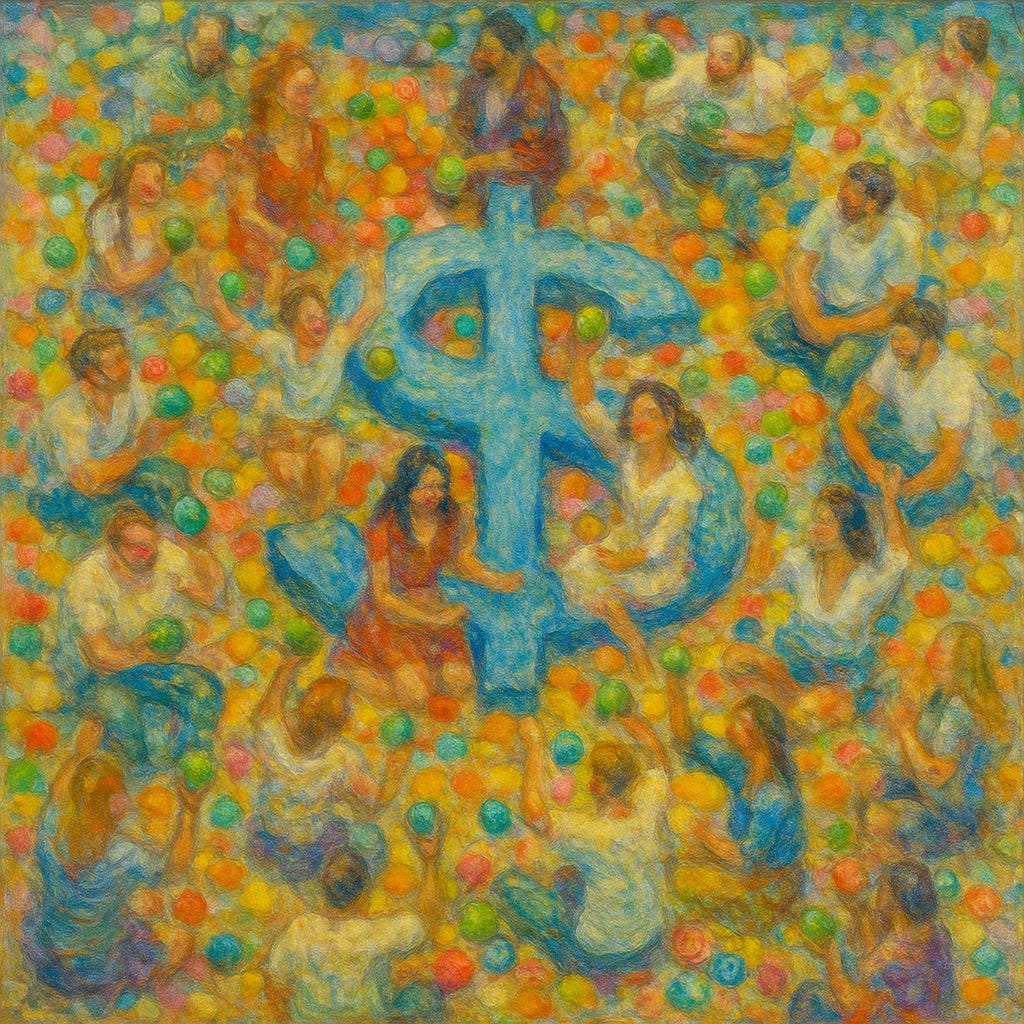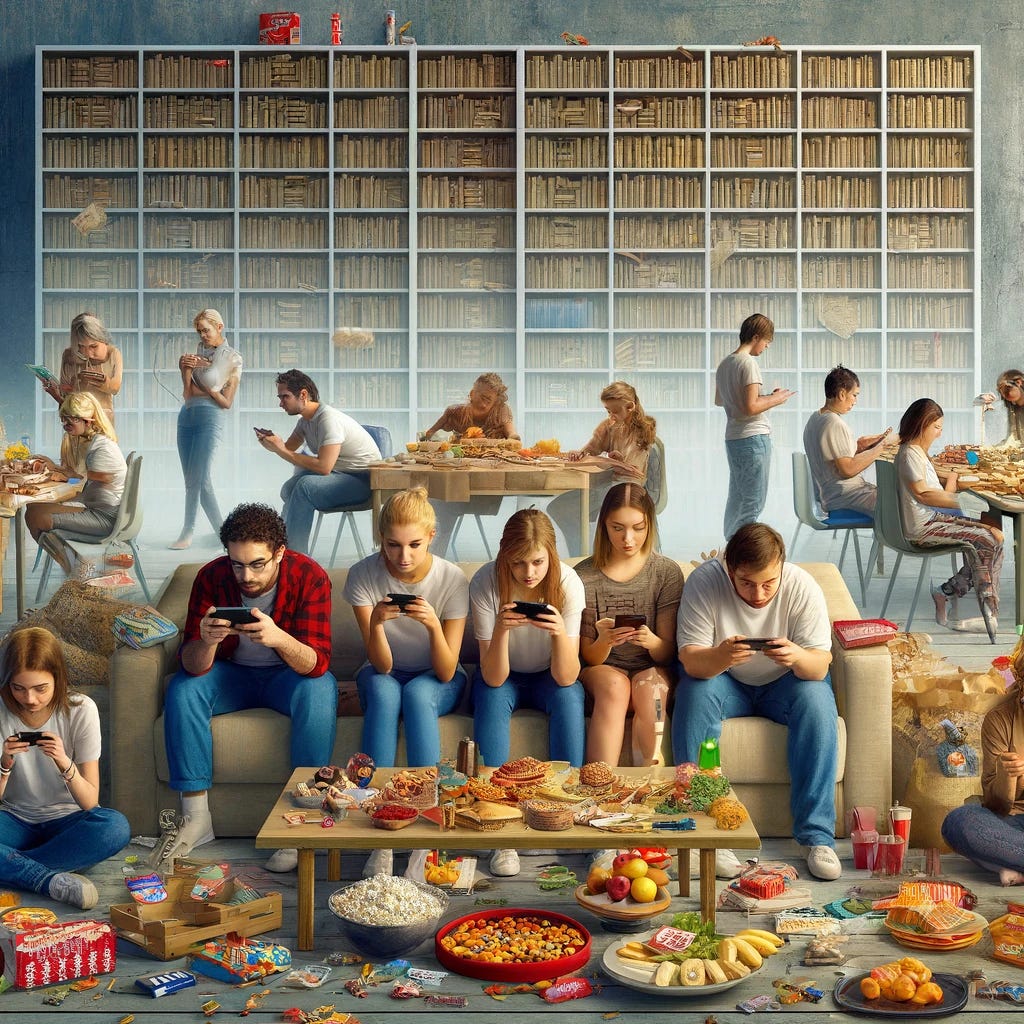The Biases That Will Kill Democracy: A Field Guide to Our Self-Inflicted Demise
These seven biases and perverse incentives may lead us toward authoritarianism, demagoguery and fiscal collapse. Remember: Positivity is overrated.
If you give even half a damn about free speech, subscribe. It means I can continue doing this without needing to ask a gender-neutral AI for spare change. I’m a suspended university professor, not a pundit barking from the cheap seats. The link is below, click it before the lawyers take it away.
Please subscribe to get at least three uncensored, impolite, fire-in-the-belly essays per week. Open comments, $6/month. Less than \ USD $4. Everyone says, “That’s just a cup of coffee.”
Well, then order mine.
Let us begin with the premise that democracy, while noble in theory and often stirring in anthem, is a leaky, wheezing contraption held together with duct tape, vanity, and the hope that the mob won’t notice it’s steering straight into a wall.
Add to this the modern accelerant of social media, and what once was a dignified stroll toward collective self-rule becomes a giddy sprint toward tyranny, insolvency, and a population that thinks TikTok is a form of public discourse.
So, do the natural incentives and biases embedded in democratic governance—amplified through digital distortion—inevitably lead to authoritarianism, demagoguery, and fiscal ruin?
Yes. With prejudice.
Here is your bias-ridden tour of doom:
1. Present Bias: Because the Future is for Losers
We are a species that plans for tomorrow only when the hangover of today subsides. The ancient creed of “Eat, drink, and be merry, for tomorrow we die” now underpins entire fiscal policy frameworks. The future has no lobbyists. No hashtags. No warm applause. It just sits there in silence, accumulating debt.
Take the average 25-year-old: invest $500 per month, and you may retire a millionaire. Wait until you’re 50, and you’ll need over $5,000 a month to match that. However, over one-third of Canadians aged 45 and older have saved nothing. Their plan? Delusion and blaming the rich.
Governments are no better. Carney’s Liberal regime spends like the grandchildren of oil sheikhs, buying votes today with tomorrow’s compound interest. Bond rating agencies, those pesky calculators of consequence, will eventually notice. When they do, Canada will be forced to raise taxes, cut services, and lay off bureaucrats in a blaze of austerity.
Expect politicians to promise painless alternatives. Expect fools to believe them.
2. The Opportunity Cost Black Hole
What is the opportunity cost of spending $42 billion on EV battery plants? Don’t ask. In Canadian politics, the mere mention of “jobs” is considered a sacrament. However, this kind of spending is akin to state-sponsored roulette. Why not return that money via tax cuts and let the market allocate it? Because ribbon cuttings don’t photograph well in tax code reforms.
The assumption that any job created is from the ranks of the unemployed is a fantasy. It’s a labour market hopscotch. We’re rearranging deckchairs on the Titanic and calling it economic policy.
3. The Squeaky Wheel Gets the Treasury
Concentrated benefits. Diffused costs. It’s political physics: a small, loud group gets millions in subsidies; the rest of us get a few bucks tacked onto our grocery bills. Who notices?
Supply management in dairy costs every Canadian an additional $400 per year. Interprovincial trade barriers could save each of us $1,100 annually. But we don’t riot. We sigh. The squeaky wheels—dairy cartels, telecom monopolies, airline cabals—get their grease while we, the tired masses, foot the bill.
4. Emotivism: Feelings as Facts
Thomas Sowell nailed it: Johnny doesn’t think because Johnny thinks thinking is feeling. Emotional reasoning now passes for argument. Enter the Kamloops hysteria: a schoolteacher, Jim McMurtry, was fired for saying there’s no evidence 210 children were murdered. He was right. But his correctness clashed with a politically lucrative narrative, so out he went.
It’s not that facts don’t matter. It’s that they hurt.
5. Numbers, Shrumbers
Billions, trillions—it’s all Monopoly money to the voter who can’t tell $10M from $ 10 B. This is “numerical numbing,” and it explains why no one panics when Ottawa racks up deficits the size of Middle Eastern GDPs. Debt clocks don’t move the needle. Emotional anecdotes do.
Break it down into monthly rent or bread prices, and maybe—maybe —we’d care. However, political cowards avoid hard truths and prefer economic abstractionism —a Jackson Pollock of numbers with no context.
6. The Bias Toward Action (Even Dumb Action)
Voters want activity. Politicians want photo-ops. Enter: Action Bias™. The government wants to be seen “doing something,” even if that something is demonstrably stupid. Cutting taxes? Boring. Building a futuristic pork plant on stilts in Thunder Bay? Now we’re talking.
Nothing plays better in the press than a government “investment,” even if that investment haemorrhages taxpayer dollars. Ribbon cuttings, not market efficiencies, win votes.
7. The Bias Toward Ignorance (Now with WiFi)
Despite having infinite access to information, we are statistically less informed. Long-form reading has given way to TikTok explainers accompanied by ukulele soundtracks. Complexity is the enemy. Students rage against Milton Friedman because he doesn’t say what they want to hear in 50 words or less.
Social media echo chambers foster division and discourage critical thinking. Emotional manipulation thrives. Cynicism festers. Enter: the demagogue. Promises of certainty and action sound divine to the uninformed. “Make Canada Normal Again” is just a few talking points away.
In this environment, reason dies in a pit of hashtags and filters.
Conclusion: Democracy, Hacked by Human Nature
We are wired for the immediate, the emotive, the stupid. The system reflects the voter. We get the leaders we deserve, and increasingly, we deserve worse.
We could fix this. However, that would require critical thinking, long-term planning, a tolerance for discomfort, and the courage to disappoint those who squeak the loudest.
And we’d rather scroll.
But if we want to save democracy from the biases embedded within it, we must stop mistaking virtue signals for virtues and TikTok for a town hall.
Otherwise, the biases win. And they won’t even have to rig the vote. They’ll just wait for us to swipe past.
If you found value in this article and wish to support my ongoing work, especially during my 18-month suspension, please consider leaving a tip. Your support helps me continue producing uncensored content on critical issues. If you are inebriated and simply open to irrational spending, you may also participate.










Bang on! As a Yank, it felt as though I was looking in a mirror. Great conservative assessment. Sad, but true.